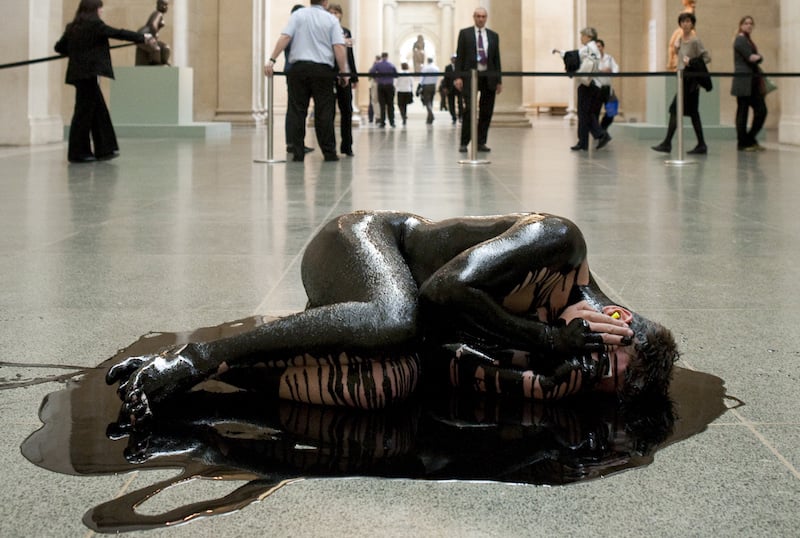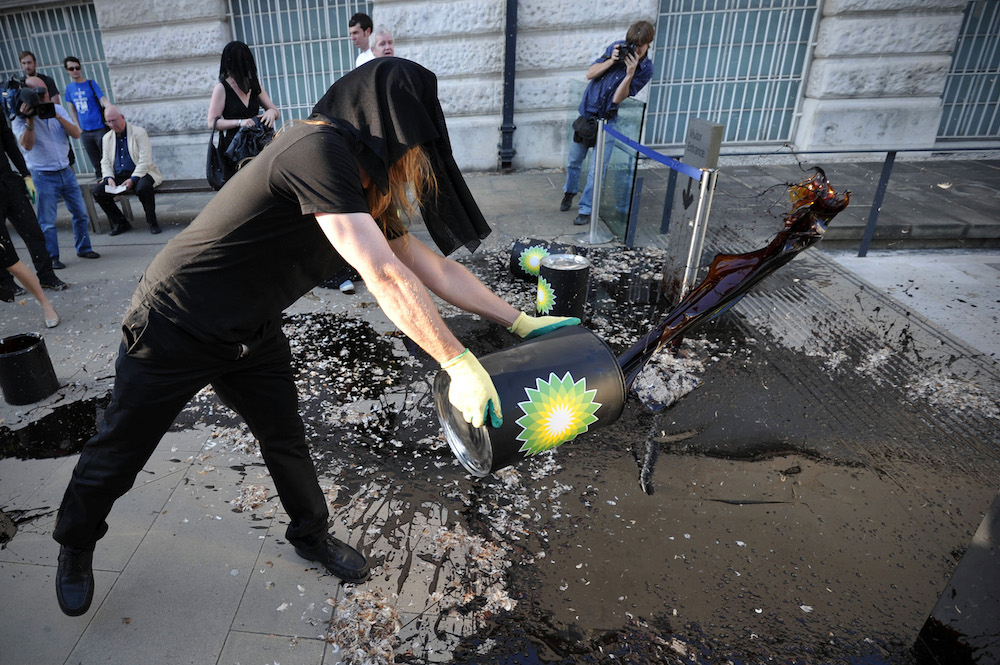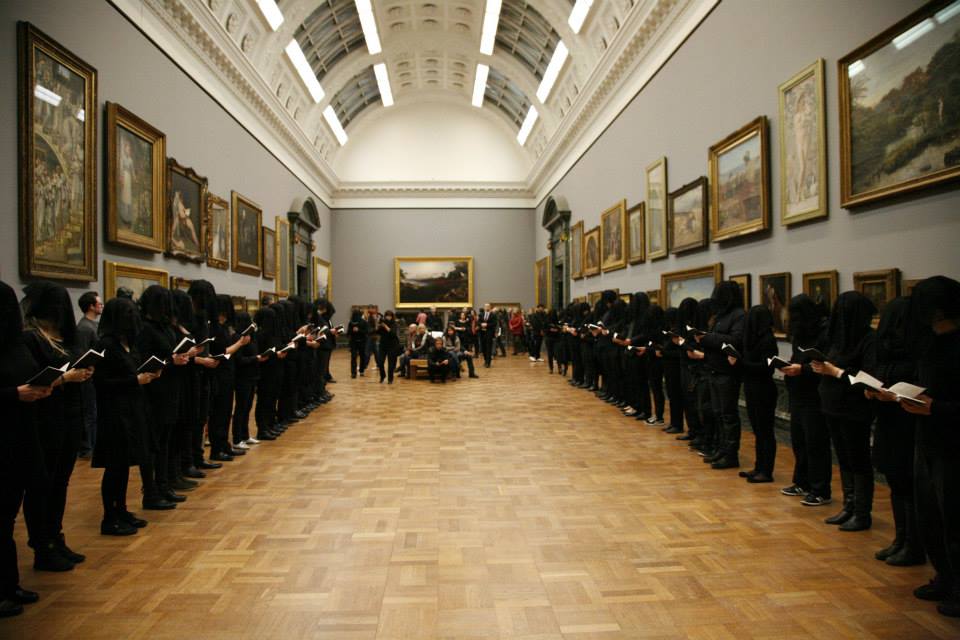Art World
Oil Giant BP to End Controversial 26-Year Tate Sponsorship in 2017
BP claimed the "challenging business environment" is behind the decision.

BP claimed the "challenging business environment" is behind the decision.

Oil giant BP will end its sponsorship of Tate in 2017, after the company decided not to renew its contract with the London museum. The controversial, 26-year partnership was subject to sustained protests from arts and environmental groups over the last few years.
“We are facing an extremely challenging business environment and are reducing spending and taking many difficult decisions throughout BP,” the oil company said a statement sent to artnet News. “As a result we have reluctantly decided not to renew our long-term partnership with Tate Britain.”
According to the New York Times, the oil industry is facing its deepest downturn since the 1990s, with the price of oil falling by more than 70 percent since June 2014. Experts believe it could be years before the price recovers.

A protester hurls molasses on the pavement outside the Tate Britain in 2010.
Photo: Carl Court/AFP/Getty Images.
According to the Independent, which broke the news, the challenges facing the oil industry suggests severing ties with Tate was a purely economic decision, rather than a result of pressure from activists.
The Tate museums have been repeatedly targeted in elaborate protests against what campaigners view as an unethical partnership. Tate even ended up in court after the campaign groups Request Initiative, Liberate Tate, and Platform requested the financial details of BP’s sponsorship of the Tate—a publicly funded institution—under the British Freedom of Information legislation in 2012.
Tate was forced to disclose that they accepted sponsorship funding totaling £3.8 million ($5.4 million), in payments varying between £150,000-£330,000 ($213,172-$468,979) a year between 1990 and 2006. The amount was dismissed as “embarrassingly small,” by activists who said the sum did not justify the ethical issues surrounding the deal.
Activist group Art Not Oil staging a protest at the Tate Britain in 2013.
Photo: Martin LeSanto-Smith/Art Not Oil via Facebook.Critics of the controversial partnership welcomed the end of the sponsorship. Anna Galkina of the arts activism group Platform told artnet News in an email:
The end of Tate’s sponsorship deal with BP is hopeful news for us, for the art world, and for everyone whose lives are affected by climate change. BP can no longer use Tate’s art collections to mask or excuse the devastation its operations have caused […] And the gallery—whether it admits this or not—has taken the best form of climate action it could. We only hope that the British Museum, Science Museum, National Portrait Gallery, and Royal Opera House will follow in Tate’s lead.
Meanwhile, BP spokesperson Shannon Wiseman told artnet News in an email: “We do not have any plans to exit our other arts partnerships.”
Tate, however, told artnet News via email that BP’s investment is “one of the most significant long-term corporate investments in UK arts and culture,” adding that “Tate wishes to express its gratitude to BP for its longstanding commitment and ground-breaking support of the Collection displays and other programs.”
Meanwhile, earlier this week Platform announced that Tate will return to court at the Information Tribunal in May over its refusal to reveal sponsorship fees paid by BP between 2007-2011. The fact that the current sponsorship deal is coming to an end will have no bearing on proceedings, Galkina said. “Of course we still want to know the details of the sponsorship deal.”